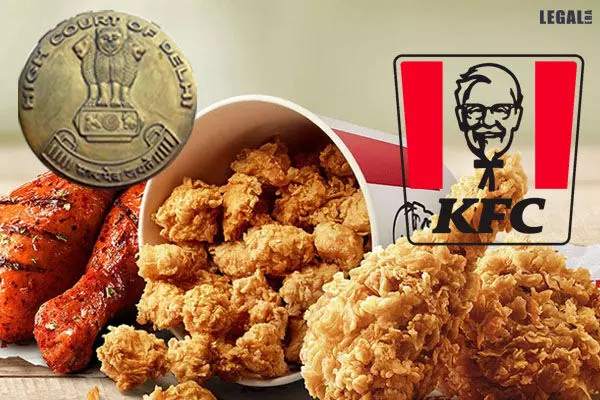- Home
- News
- Articles+
- Aerospace
- Artificial Intelligence
- Agriculture
- Alternate Dispute Resolution
- Arbitration & Mediation
- Banking and Finance
- Bankruptcy
- Book Review
- Bribery & Corruption
- Commercial Litigation
- Competition Law
- Conference Reports
- Consumer Products
- Contract
- Corporate Governance
- Corporate Law
- Covid-19
- Cryptocurrency
- Cybersecurity
- Data Protection
- Defence
- Digital Economy
- E-commerce
- Employment Law
- Energy and Natural Resources
- Entertainment and Sports Law
- Environmental Law
- Environmental, Social, and Governance
- Foreign Direct Investment
- Food and Beverage
- Gaming
- Health Care
- IBC Diaries
- In Focus
- Inclusion & Diversity
- Insurance Law
- Intellectual Property
- International Law
- IP & Tech Era
- Know the Law
- Labour Laws
- Law & Policy and Regulation
- Litigation
- Litigation Funding
- Manufacturing
- Mergers & Acquisitions
- NFTs
- Privacy
- Private Equity
- Project Finance
- Real Estate
- Risk and Compliance
- Student Corner
- Take On Board
- Tax
- Technology Media and Telecom
- Tributes
- Viewpoint
- Zoom In
- Law Firms
- In-House
- Rankings
- E-Magazine
- Legal Era TV
- Events
- Middle East
- Africa
- News
- Articles
- Aerospace
- Artificial Intelligence
- Agriculture
- Alternate Dispute Resolution
- Arbitration & Mediation
- Banking and Finance
- Bankruptcy
- Book Review
- Bribery & Corruption
- Commercial Litigation
- Competition Law
- Conference Reports
- Consumer Products
- Contract
- Corporate Governance
- Corporate Law
- Covid-19
- Cryptocurrency
- Cybersecurity
- Data Protection
- Defence
- Digital Economy
- E-commerce
- Employment Law
- Energy and Natural Resources
- Entertainment and Sports Law
- Environmental Law
- Environmental, Social, and Governance
- Foreign Direct Investment
- Food and Beverage
- Gaming
- Health Care
- IBC Diaries
- In Focus
- Inclusion & Diversity
- Insurance Law
- Intellectual Property
- International Law
- IP & Tech Era
- Know the Law
- Labour Laws
- Law & Policy and Regulation
- Litigation
- Litigation Funding
- Manufacturing
- Mergers & Acquisitions
- NFTs
- Privacy
- Private Equity
- Project Finance
- Real Estate
- Risk and Compliance
- Student Corner
- Take On Board
- Tax
- Technology Media and Telecom
- Tributes
- Viewpoint
- Zoom In
- Law Firms
- In-House
- Rankings
- E-Magazine
- Legal Era TV
- Events
- Middle East
- Africa
Delhi High Court Notice To Nashville Fried Chicken In KFC's Trademark Suit

Delhi High Court Notice To Nashville Fried Chicken In KFC's Trademark Suit
Introduction
The Delhi High Court has issued notice in a plea filed by Kentucky Fried Chicken (KFC) against Massive Restaurants Private Limited, which owns Nashville Fried Chicken (NFC) and several other restaurant chains. KFC has filed a rectification application and a suit against Massive Restaurants, alleging trademark infringement.
Factual Background
KFC, a popular fast-food chain that has been operating in India since 1995 with over 600 outlets across the country. Meanwhile NFC is a brand owned by Massive Restaurants, which operates several restaurant chains, including Farzi Cafe, Pa Pa Ya, Masala Library, and Louis Burger.
Procedural Background
The plaintiff claimed that the name NFC is too similar to KFC and may easily mislead the public.
It was pointed out by the plaintiff’s counsel that Delhi High Court had already prohibited other firms from using the term 'FC' for selling fried chicken in a 2024 verdict in which the court ordered a brand called 'Ali Fried Chicken' to change its name in response to KFC's complaints.
Issues Involved
1. Trademark Infringement: Whether NFC's trademark application is likely to cause confusion among consumers due to its similarity with KFC's brand.
2. Well-Known Trademark: Whether KFC's trademark deserves additional protection as a "well-known trademark" under the Trade Marks Act, 1999.
Contentions of the Parties
Plaintiff’s Contentions: KFC argued that NFC's mark is deceptively similar to its brand and is likely to cause confusion among consumers. The plaintiff also cited earlier orders of the court that barred brands from using 'FC' for Fried Chicken.
Defendant’s Contentions: The defendant has been asked to file a response.
Reasoning and Analysis
The court in this case is being presided over by Justice Amit Bansal who has directed the defendant to file a response to KFC's plea. The court will consider whether NFC's trademark application is likely to cause confusion among consumers and whether KFC's trademark deserves additional protection as a "well-known trademark."
Final Decision
KFC has many registered trademarks in India that cover a variety of goods and services. While the Registrar has not issued an official declaration recognizing KFC as a "well-known trademark" under Section 11(6), courts in India have frequently considered globally renowned companies like KFC as inherently well-known in enforcement actions, particularly in passing-off or infringement cases.The matter is listed for hearing on May 28, 2025.
Law Settled
This case highlights the importance of protecting well-known trademarks and the potential consequences of trademark infringement. The court's decision will provide clarity on the scope of protection for well-known trademarks in India once the defendant files a response.
In this case the plaintiff was represented by Ms. Shwetashree Majumder, Advocate.



